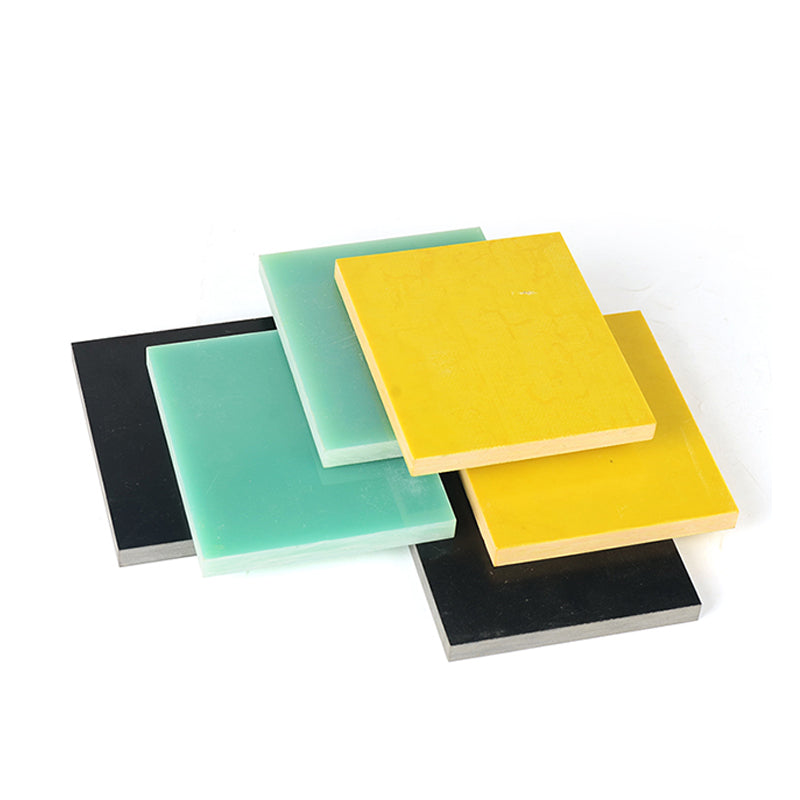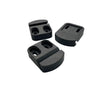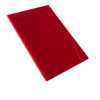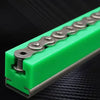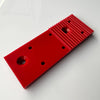Expert Insights: Procuring the Perfect UHMW-PE Parts with CNC Machining
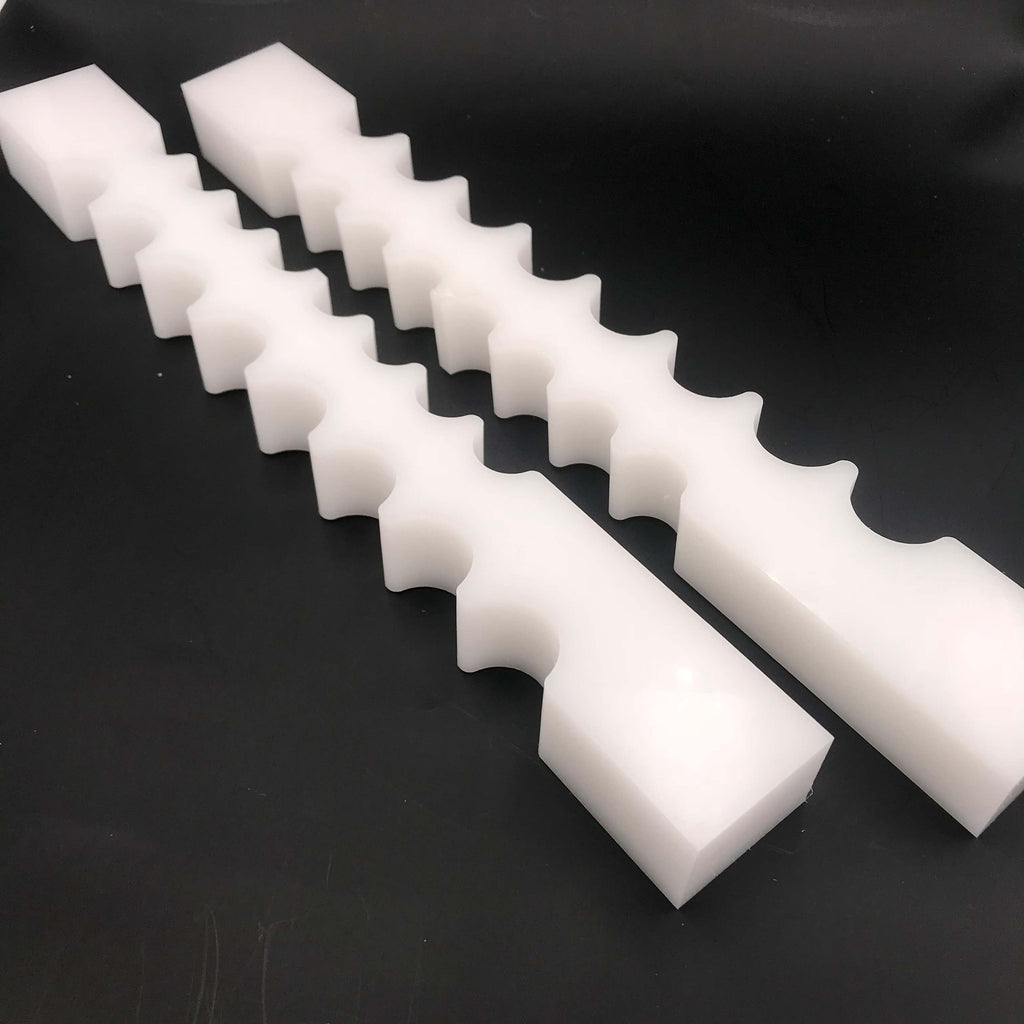
Discover the Art of Procuring UHMW-PE CNC Machined Parts
Dive into the world of UHMW-PE CNC machining with our latest blog post, "[Expert Insights: Procuring the Perfect UHMW-PE Parts with CNC Machining]." This comprehensive guide offers a deep dive into the unique properties of UHMW-PE, highlighting its high impact strength, wear resistance, and low friction qualities that make it ideal for precision machining. We take you through the intricate CNC machining process, detailing the crucial steps from tool selection to speed settings, ensuring the production of high-quality parts.

Quality control is paramount in this field, and our post emphasizes the importance of dimensional accuracy, surface finish, and material integrity in UHMW-PE parts. We explore the vast array of applications for these parts across various industries, from mechanical equipment to food processing and material handling, showcasing the versatility of UHMW-PE when CNC machined.
Finally, we provide valuable insights into cost-effective procurement strategies, guiding you on selecting the right supplier, understanding cost factors, and balancing quality with budget. Whether you're a seasoned buyer or new to the field of CNC machining, this post is packed with expert advice and tips to help you navigate the procurement process with confidence.
Embark on this journey to mastering the procurement of UHMW-PE parts and discover how to make informed decisions that lead to successful outcomes.
Understanding UHMW-PE Material Properties
When delving into the world of CNC machining, one material stands out for its exceptional qualities: UHMW-PE (Ultra High Molecular Weight Polyethylene). This thermoplastic is renowned for its unique combination of properties, making it an ideal candidate for precision machining and a variety of industrial applications.

What is UHMW-PE?
UHMW-PE, short for Ultra High Molecular Weight Polyethylene, is a subset of the thermoplastic polyethylene. It is characterized by its long chains, which give it a high molecular mass. This structure not only contributes to its notable strength but also imparts other beneficial properties.
High Impact Strength
One of the most significant characteristics of UHMW-PE is its high impact strength. This quality makes it resistant to sudden and severe impacts, a crucial factor in industries where parts are subjected to heavy loads or high-stress conditions. The impact strength of UHMW-PE ensures durability and longevity in parts produced through CNC machining.
Wear Resistance
Another key attribute of UHMW-PE is its wear resistance. This material exhibits excellent resistance to abrasion and can withstand prolonged exposure to harsh environments without degrading. This property is particularly beneficial in applications where parts are in constant motion or contact with other materials, reducing the need for frequent replacements and maintenance.
Low Friction Properties
UHMW-PE also boasts low friction properties. This characteristic minimizes resistance during operation, leading to smoother performance of machined parts. It's especially advantageous in applications requiring sliding mechanisms, where reduced friction is essential for efficient operation.

Ideal for CNC Machining
The combination of high impact strength, wear resistance, and low friction makes UHMW-PE an ideal material for CNC machining. These properties allow for the creation of parts that are not only precise but also durable and efficient in their application. CNC machining leverages these attributes to produce components that meet exact specifications while ensuring reliability and performance.
Versatile Applications
The versatility of UHMW-PE extends to a wide range of industries. From mechanical parts in the automotive sector to components in food processing equipment, UHMW-PE's properties make it a preferred choice for various applications. Its ability to withstand different environmental conditions also broadens its usability across sectors.
UHMW-PE's unique material properties make it a standout choice for CNC machining. Its high impact strength, wear resistance, and low friction properties are not just beneficial but essential for creating high-quality, durable, and efficient parts. As we continue to explore the capabilities of UHMW-PE in CNC machining, its role in advancing industrial applications remains undeniable.
The CNC Machining Process for UHMW-PE Parts
Understanding the CNC machining process for UHMW-PE (Ultra High Molecular Weight Polyethylene) is crucial for anyone involved in the procurement of high-quality machined parts. This section delves into the specific steps, techniques, and considerations that ensure the precision and quality of UHMW-PE parts.

Key Steps in CNC Machining UHMW-PE
Initial Design and Planning
The process begins with initial design and planning. Utilizing advanced software, engineers and machinists create detailed blueprints of the desired UHMW-PE part. This stage is critical for ensuring that the final product meets the exact specifications and requirements.
Material Selection
Choosing the right grade of UHMW-PE is essential. Different grades offer varying properties, such as enhanced wear resistance or improved impact strength, tailored to specific applications. Selecting the appropriate grade ensures the part will perform optimally in its intended environment.
Machining Techniques and Considerations
Tool Selection
Tool selection is a pivotal aspect of the CNC machining process. For UHMW-PE, tools made from materials like carbide or diamond are often preferred due to their ability to maintain sharpness and resist wear. The right tool not only improves efficiency but also ensures a high-quality finish.
Speed Settings
Adjusting the speed settings is crucial for machining UHMW-PE. Optimal speed varies depending on the complexity of the part and the grade of UHMW-PE used. Proper speed settings minimize the risk of melting or warping the material, ensuring a precise and clean cut.
Machining Strategies
Implementing effective machining strategies is key to the success of the process. Techniques like gradual layer removal and the use of cooling systems help maintain the integrity of UHMW-PE, preventing heat buildup and material deformation.

Ensuring Precision and Quality
Regular Inspections
Throughout the machining process, regular inspections are conducted to ensure that each part meets the stringent quality standards. This involves checking dimensions, surface finish, and overall integrity of the part.
Final Finishing
The final step involves finishing the machined UHMW-PE part. This may include processes like polishing or deburring to achieve the desired surface quality and appearance.
The CNC machining process for UHMW-PE parts is a meticulous and precise operation. From the initial design to the final finishing touches, each step is crucial in shaping the quality and performance of the final product. Understanding these steps and techniques is essential for anyone looking to procure high-quality UHMW-PE parts.
Quality Control in UHMW-PE CNC Machining
Quality control is a pivotal aspect of the CNC machining process, especially when working with materials like UHMW-PE (Ultra High Molecular Weight Polyethylene). This section highlights the critical quality control measures that are essential in ensuring the procurement of high-quality UHMW-PE parts.
The Importance of Dimensional Accuracy
Ensuring Precise Measurements
Dimensional accuracy is paramount in CNC machining. It involves ensuring that the machined UHMW-PE parts conform precisely to the specified dimensions in the design plans. This accuracy is crucial for parts that need to fit into specific assemblies or require high levels of precision for proper functionality.
Advanced Measuring Tools
Utilizing advanced measuring tools, such as calipers, micrometers, and CMM (Coordinate Measuring Machines), is essential in achieving and verifying dimensional accuracy. These tools provide precise measurements, ensuring that each part meets the exact specifications.
Surface Finish Quality
Achieving Desired Surface Smoothness
The surface finish of UHMW-PE parts is another critical quality control aspect. A smooth and uniform surface is often required for aesthetic purposes and to ensure proper function, especially in parts that interact with other components.
Techniques to Enhance Surface Quality
Various techniques, such as fine milling and polishing, are employed to enhance the surface quality of UHMW-PE parts. These processes are carefully monitored to achieve the desired level of smoothness without compromising the material's integrity.

Maintaining Material Integrity
Preserving Material Properties
Maintaining the material integrity of UHMW-PE during CNC machining is essential. This involves ensuring that the material retains its inherent properties, such as impact resistance and wear resistance, throughout the machining process.
Avoiding Heat Damage
Special attention is given to avoid heat damage during machining, which can alter the material's properties. Techniques like using appropriate cutting speeds and cooling systems are employed to preserve the integrity of UHMW-PE.
Rigorous Inspection Protocols
Implementing Stringent Inspections
Implementing rigorous inspection protocols is a key part of quality control. Each machined part undergoes thorough inspections at various stages of the machining process to ensure it meets all quality standards.
Continuous Quality Improvement
Feedback from these inspections is used for continuous quality improvement, ensuring that the machining process remains efficient and effective in producing high-quality UHMW-PE parts.
Quality control in UHMW-PE CNC machining is not just about adhering to standards; it's about ensuring that each machined part meets the highest levels of precision, surface finish, and material integrity. This commitment to quality is essential for the procurement of superior UHMW-PE parts that meet and exceed application requirements.
Applications and Uses of CNC Machined UHMW-PE Parts
UHMW-PE (Ultra High Molecular Weight Polyethylene), known for its remarkable properties, finds extensive applications across various industries when CNC machined. This section explores the diverse uses of UHMW-PE parts, highlighting the material's versatility and adaptability.

In Mechanical Equipment
Enhancing Performance and Durability
In the realm of mechanical equipment, UHMW-PE parts play a crucial role. Their high impact strength and wear resistance make them ideal for components that endure heavy loads and high-stress conditions. CNC machined UHMW-PE parts are commonly used in gears, bearings, and bushings, where they contribute to the equipment's overall performance and durability.
Reducing Maintenance Needs
The self-lubricating nature of UHMW-PE reduces the need for additional lubrication, thereby lowering maintenance requirements and prolonging the lifespan of mechanical components.
In Food Processing Industry
Meeting Hygiene and Safety Standards
The food processing industry greatly benefits from the use of UHMW-PE parts. This material is FDA compliant, making it safe for contact with food products. CNC machined UHMW-PE parts are used in conveyor systems, guides, and rollers, where their non-toxic and easy-to-clean nature ensures adherence to strict hygiene and safety standards.
Enhancing Efficiency
UHMW-PE's low friction coefficient facilitates smoother operations of machinery, enhancing efficiency in food processing lines.

In Material Handling
Withstanding Harsh Environments
In material handling, UHMW-PE's resistance to chemicals and abrasion makes it suitable for use in environments where parts are exposed to corrosive substances or abrasive materials. Components like conveyor guides, chutes, and slides benefit from UHMW-PE's durability.
Improving Operational Smoothness
The low friction properties of UHMW-PE ensure smooth operation in material handling equipment, reducing wear and tear and enhancing the flow of materials.
Versatility Across Industries
Adaptable to Various Applications
UHMW-PE's versatility is not limited to these industries. Its properties make it adaptable to various applications, from automotive parts to marine applications, where its buoyancy and resistance to saltwater corrosion are advantageous.
Customization through CNC Machining
CNC machining allows for the customization of UHMW-PE parts to meet specific industry needs, further enhancing its applicability across different sectors.
The applications and uses of CNC machined UHMW-PE parts are as diverse as the industries they serve. From improving the efficiency of food processing lines to enhancing the durability of mechanical equipment, UHMW-PE's unique properties, combined with the precision of CNC machining, make it an invaluable material in numerous industrial applications.

Cost-Effective Procurement Strategies for UHMW-PE CNC Parts
Procuring UHMW-PE (Ultra High Molecular Weight Polyethylene) CNC machined parts requires a strategic approach to balance cost and quality effectively. This section provides insights into optimizing the procurement process, ensuring that buyers get the best value for their investment.
Understanding the Cost Factors
Material and Machining Costs
The cost of UHMW-PE parts is influenced by various factors, including the price of raw materials and the complexity of the CNC machining process. Understanding these cost drivers is essential for budget planning and cost control.
Volume and Scale of Production
The scale of production also impacts cost. Larger orders often come with economies of scale, reducing the per-unit cost. However, it's crucial to assess the demand accurately to avoid overstocking or underordering.
Selecting the Right Supplier
Evaluating Supplier Expertise
Choosing the right supplier is critical. Look for suppliers with expertise in CNC machining of UHMW-PE, as they are more likely to produce high-quality parts. Assess their track record, machinery capabilities, and technical know-how.
Considering Supplier Location
The location of the supplier can significantly affect logistics costs and lead times. Local suppliers may offer lower shipping costs and faster delivery, but it's important to balance these benefits with the overall quality and cost of the parts.
Balancing Quality with Budget
Prioritizing Critical Features
While cost is a key consideration, compromising on quality can lead to higher expenses in the long run due to replacements and downtime. Prioritize critical features and quality standards that are non-negotiable for your application.
Exploring Cost-Reduction Opportunities
Engage with suppliers to explore cost-reduction opportunities. This could involve optimizing the design for more efficient machining, selecting alternative grades of UHMW-PE that meet requirements but are more cost-effective, or negotiating better terms for larger or long-term orders.
Long-Term Partnerships and Negotiations
Building Relationships with Suppliers
Developing long-term relationships with suppliers can lead to better pricing, improved service, and more favorable terms. A strong partnership is beneficial for both parties and can lead to more cost-effective procurement over time.
Effective Negotiation Strategies
Effective negotiation is key. Be clear about your requirements and budget constraints, but also be open to suggestions from suppliers. A collaborative approach can often result in a win-win situation.
Cost-effective procurement of UHMW-PE CNC parts requires a comprehensive understanding of cost factors, careful selection of suppliers, and a strategic approach to balancing quality and budget. By considering these aspects, buyers can optimize their procurement process, ensuring they acquire high-quality UHMW-PE parts at the most reasonable cost.
-
Posted in
chemical resistance, CNC machining, corrosion resistance, engineering plastic, food processing, heavy machinery, pharmaceuticals, textiles, UHMW-PE, wear resistance

